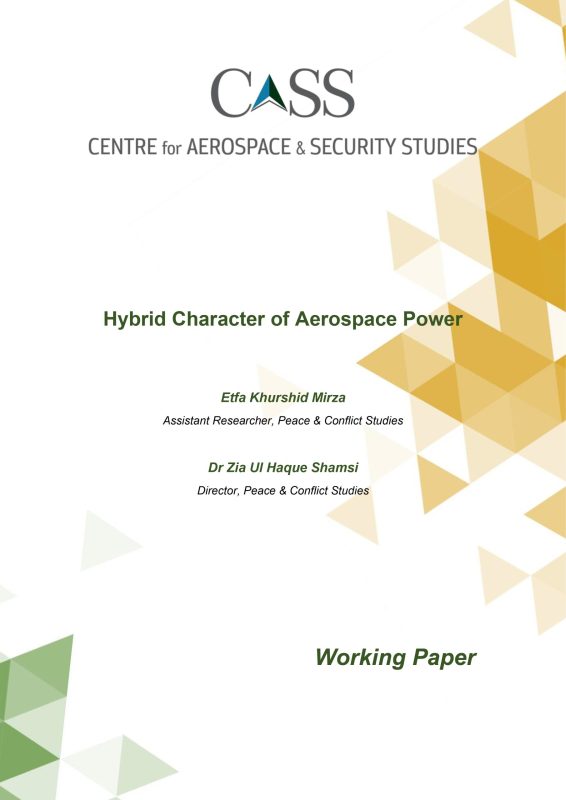Abstract
Although the term ‘hybrid’ has grown incredibly popular, the field of aerospace power is where its true meaning may be found. Strategists were quickly drawn to using the air as a military medium as a result of the development of air power. The race to reach the stars then began, and today it is thought that whoever has control of the air and space will have a strategic edge over the adversary. In this regard, it is also imperative to note the importance of Intelligence, Surveillance, and Reconnaissance (ISR), human intelligence, integration, and hybrid warfare in enhancing aerospace power. This Working Paper, based on secondary sources, explores the hybrid use of aerospace power to put oneself in an advantageous position over the enemy in any future confrontation, notably in the Indo-Pak scenario.




